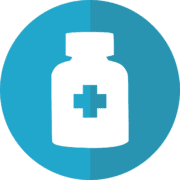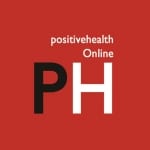Is It Safe to Keep Taking Your Pain Reliever?
Why No Pain Pill Is Totally Safe
By Julia Westbrook
We break down the hidden side effects of three common pain meds.
It’s time to reevaluate how we deal with pain. Pain meds, even the ones that are easily available or ones we think of as safe, can have unintended consequences that take a toll on your body.”We think they’re safe because they’re available over-the-counter, and we consume them like they’re candy,” says Gary Kaplan, DO, author of Total Recovery: A Revolutionary New Approach to Breaking the Cycle of Pain and Depression. “But we need to be much more thoughtful in how we handle our aches and pains.”
Before you reach into the medicine cabinet, consider these lesser-known side effects of pain pills.
Acetaminophen
Acetaminophen (the ingredient found in Tylenol) seems to have the fewest drawbacks, but that doesn’t mean it’s perfectly safe. “It’s OK as long as you do not exceed the recommended dose,” says Dr. Kaplan. “When you exceed the recommended dose, the real risk becomes liver toxicity and damage to the liver.” He stresses that this is why you cannot drink alcohol when taking acetaminophen.
In addition to risks of liver toxicity, new research suggests that acetaminophen blunts not only your pain but also your emotions. In a study from Ohio State University, those who took acetaminophen did not experience the same emotional highs or lows as people taking a placebo.
Pregnant women should also be wary of acetaminophen. “What we thought were OK medications for pregnant women to be taking probably were not,” says Dr. Kaplan.
He explains that boys exposed to acetaminophen in the womb are at higher risk for undescended testes, leading to a higher risk for low sperm count and, potentially, in the long term, testicular cancer. The highest risk for this is during the second trimester of pregnancy, and it can occur with even low, intermittent use.
NSAIDs
Non-steroidal anti-inflammatory drugs, or NSAIDs are easily available over-the-counter, but they come with a long list of health concerns. “These medications that we’ve been told are completely safe, and we take them without a second thought, are, in fact, not completely safe and need to be used with great discretion,” says Dr. Kaplan. “They need to be taken only when needed.”
“The thing that everyone thinks about is the risk for gastric ulcers and bleeding from the gastrointestinal tract,” says Dr. Kaplan. “But the bigger risk is that, with regular use of these medications, we see small intestine ulcers that occur in upwards of 80 percent of people taking these medications regularly. This is going to cause a massive disruption of the gut flora.”
Dr. Kaplan points out that more and more research is coming out showing the impact of the gut on the brain. “So a healthy gut is absolutely essential to having a healthy brain,” he says. “If we’re taking medications that are causing ulcerations in the small intestine, completely screwing up our gut flora and completely screwing up our ability to absorb proper nutrients, when all is said and done, these are not good medications to be taking on a regular basis.”
Heart disease is another health concern associated with NSAIDs. The U.S. Food and Drug Administration issued a warning that NSAIDs can increase the risk for heart attack or stroke, even in otherwise healthy individuals.
Dr. Kaplan says that using these medications less than three times per week is probably safe, but more than that and you are taking a real risk.
And if you have a heart condition and are taking meds for that condition, definitely consult with your doctor about the potential for drug-drug interactions. For instance, Dr. Kaplan explains that if you’re taking aspirin to prevent a heart attack and then take ibuprofen for pain, the ibuprofen will negate the aspirin.
NSAIDs may also interact with antidepressants, increasing the risk of bleeding in the brain, or hemorrhaging, Korean researchers found.
Other risks of taking NSAIDs include increased sun sensitivity and potential kidney damage.
NSAIDs also have risks for pregnant women and babies during all three trimesters, says Dr. Kaplan. Taken during the first trimester, NSAIDs increase the risk for miscarriage. During the second trimester, NSAIDs can have similar effects on baby boys as acetaminophen. And during the third trimester, taking NSAIDs can lead to congenital heart issues in the newborn.
Opioids
The health impacts of prescription opioids are more well known, yet there are people who do take them regularly. “There is a time and a place for opioid medications, but it needs to be very limited and very thoughtful,” says Dr. Kaplan. “There are those with chronic pain on opioid medications, but this is really an admission of failure on our part in our ability to solve the problem because the opioids don’t fix the underlying problem, they just cover up the pain.”
Problems with opioids include constipation, low testosterone, and, since opioids are addictive, withdrawal. During pregnancy, they increase the risk for neurotube defects by about 2.2 times and can lead to withdrawal symptoms in the baby as well as preterm birth.
Looking for Alternatives
“Before we pop a pill, we need to stop and think about what may be causing the pain and what we can do to relieve the pain,” says Dr. Kaplan. Rather than covering up the pain, therapies that include icing, stretching, heat, acupuncture, massage, and physical therapy, eating curcumin-rich turmeric, and taking glucosamine sulfate can help resolve the issue.
“We want to look at how we can fix the problems that have health effects not only at the joint but throughout the entire body,” he adds.
As first seen on RodaleNews.com.











Leave a Reply
Want to join the discussion?Feel free to contribute!